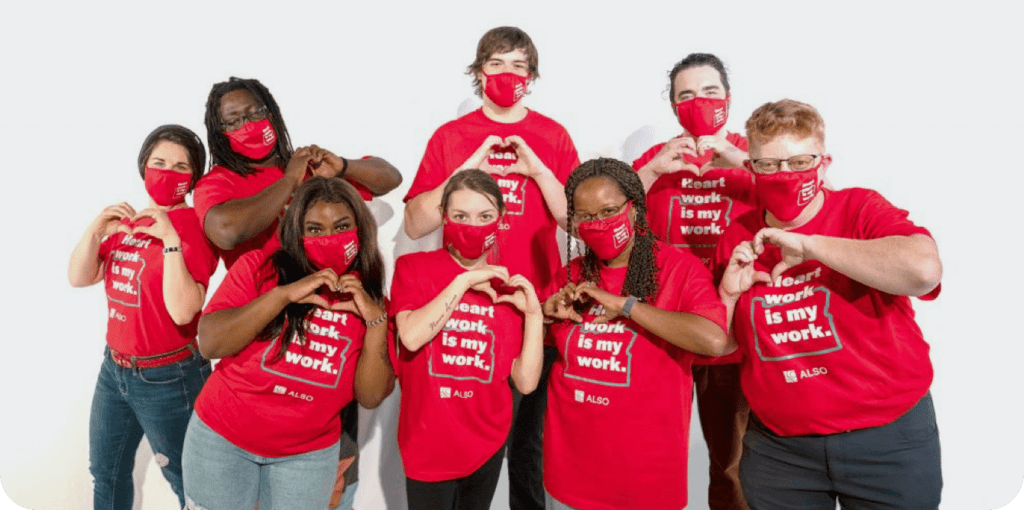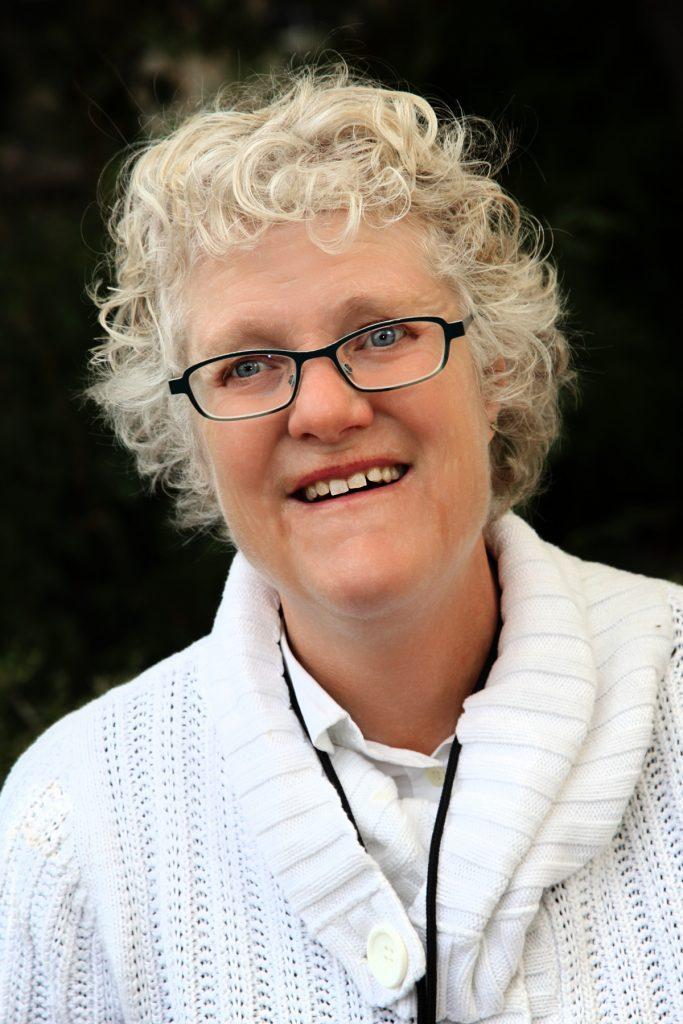Explore the ALSO Children’s Homes Wishlist and help fill the season with joy for the children supported by ALSO.
Explore the ALSO Children’s Homes Wishlist and help fill the season with joy for the children supported by ALSO.


Kaaren Londahl gives the word “active” a whole new meaning. Besides working as a greeter at Community Pathways, she takes classes at PHAME, a fine and performing arts academy, and volunteers there as Facilities Assistant. She served two terms on the Oregon Council on Developmental Disabilities and currently sits on the boards and committies of four non-profits: ALSO, The Arc of Oregon, Independence NW, and the Oregon Self Advocacy Coalition, who named her 2018’s Self-Advocate of the Year. Kaaren hasn’t let quarantine keep her down, either. Though the pandemic has curtailed many of her in-person activities, she stays active virtually, connecting with others via her iPad and Zoom.
What’s behind Karen’s appetite for service? She’s on a mission. She wants people experiencing intellectual and developmental disabilities (I/DD) “to be in the community and live like anybody else.” After all, that’s what she does. Kaaren has a job. She pays taxes. She bought her own house, where her only roommate is her dog, Honey Bee. Tireless, enthusiastic, and optimistic, Kaaren is a true self-advocate, one who frames her successes as achievable goals for others.
Like any good advocate, Kaaren wants people to know how far we’ve come. “Have you ever heard of Fairview?” she asks. Though she didn’t live there, the former Oregon institution with the dark past is part of Kaaren’s history. “My mother was one of the people who closed Fairview,” she says. “And I was on one of the hearings that they had to close Fairview down. They promised that the money [from the sale of the property] would go to people who could live on their own.” That promise was kept. The institution was closed in 2000, and money from the property sale funded the Fairview Housing Trust*, which provided grants to people with disabilities for home modification, helping them to live independently.
Kaaren also helped people become more independent by working to pass the Stephen Beck Jr. Achieving a Better Life Experience (ABLE) Act, which allows qualified individuals with disabilities to put money in tax-advantaged savings accounts. Prior to the ABLE Act, people with disabilities could have just $2000 in assets without risking loss of many federal benefits, including Supplemental Security Income (SSI) and Medicaid. Since the act’s passage in 2014, people with disabilities can save up to $100,000 without losing eligibility. “People can save money and build their bank up a little bit,” says Kaaren, “to buy a house, or a car, or help them go through college.”
Kaaren’s mother Pauline inspired her to become a self-advocate. “She taught me to be independent and not to be afraid.” Kaaren shares that message with the parents who advocate alongside her. “At first I was scared talking to parents but then you wake up and you realize you’re in the same room…connecting with them…I helped parents out who had people who had a disability. I said, ‘Let your kids grow. Let them be independent. They’re not going to be babies anymore. They have to find their own way to live.’”
She knows her advice has hit home. “[One mother] told me you really made my family grow a lot because my kid is independent.”
Kaaren talks to her peers as well as parents. “I want people to live independently and have people not be afraid to speak up,” says Kaaren. “I want people to have their voice…They should use their voice and speak up and say what they want for their life.”
It’s important that elected officials hear those voices, says Kaaren. She encourages self-advocates to talk to legislators, and to focus on their individual stories. “One person might say we need better healthcare, and another person might say that they take buses back and forth to their work, or they need help to go to college. Tell them [legislators] about it so they can help people.”
Kaaren also wants people experiencing intellectual and developmental disabilities (I/DD) to choose their elected officials and has worked hard to get out the vote. She urged her peers to get their ballots in, and asked PAs (Personal Agents), also known as case managers) to talk to the people they support about the voting process. “We can’t tell people who to vote for, but we can just say get your ballot in.”
Being a self-advocate doesn’t mean you don’t need support. “If we didn’t have PAs people would fall through the cracks,” Kaaren says. “People need support people to help them out.”
And they need people like Kaaren. “I know how they struggle but sometimes they don’t have to,” she says. “They can reach out to people who self-advocate. They need mentors like me, people they can talk to…I’ll say, ‘Go for your future. Don’t be afraid. I’m here for you. I will be your back-up person.”
Kaaren means it. She’s on a mission, promoting independent living to everyone, everywhere, whenever she can. When an interviewer mentions her five-year-old son, Kaaren smiles. “If he needs to be independent,” she says. “I can teach him to be independent.”
* In 2019, Oregon SB491 transferred the responsibility for administering the Fairview Housing Trust from the state Department of Human Services to the Oregon Community Foundation.

Sign up for our newsletter to get our latest news, content, and job opportunities.
Help us ensure that everyone has the same opportunities in their home, workplace and community. Let’s make dreams!
